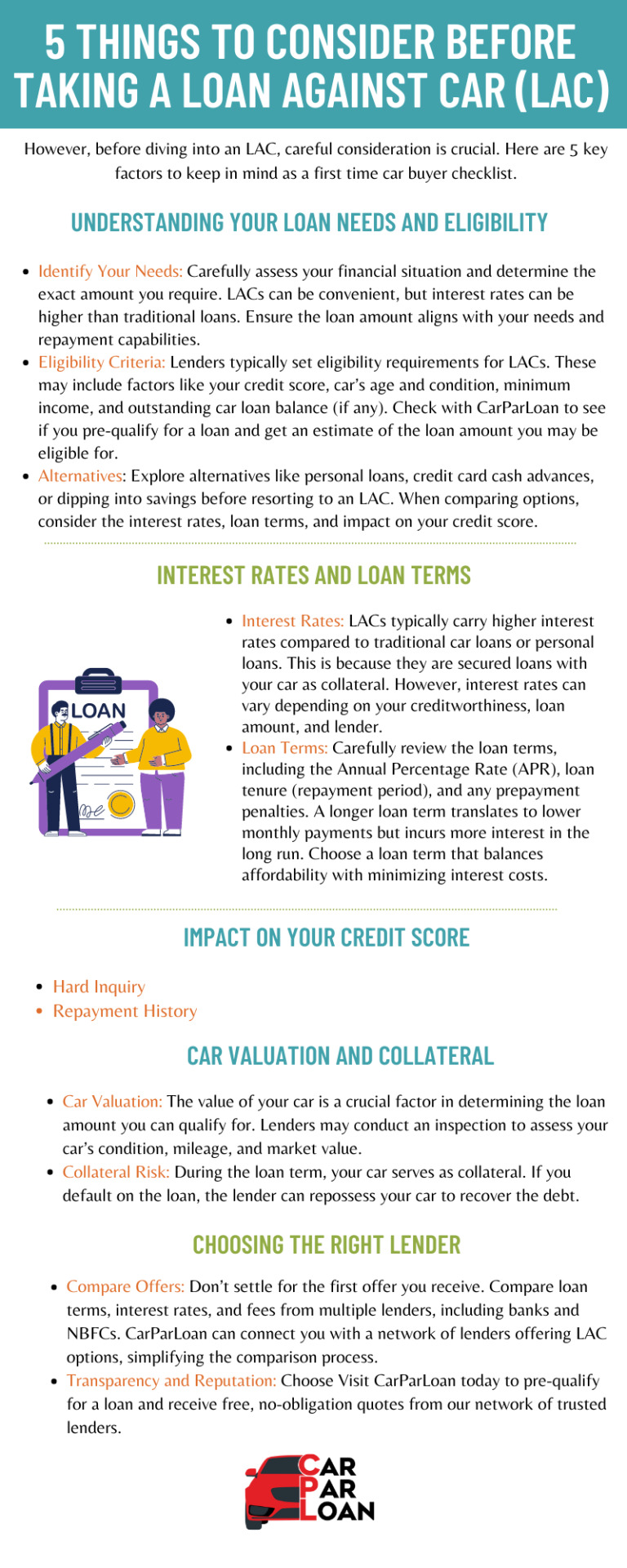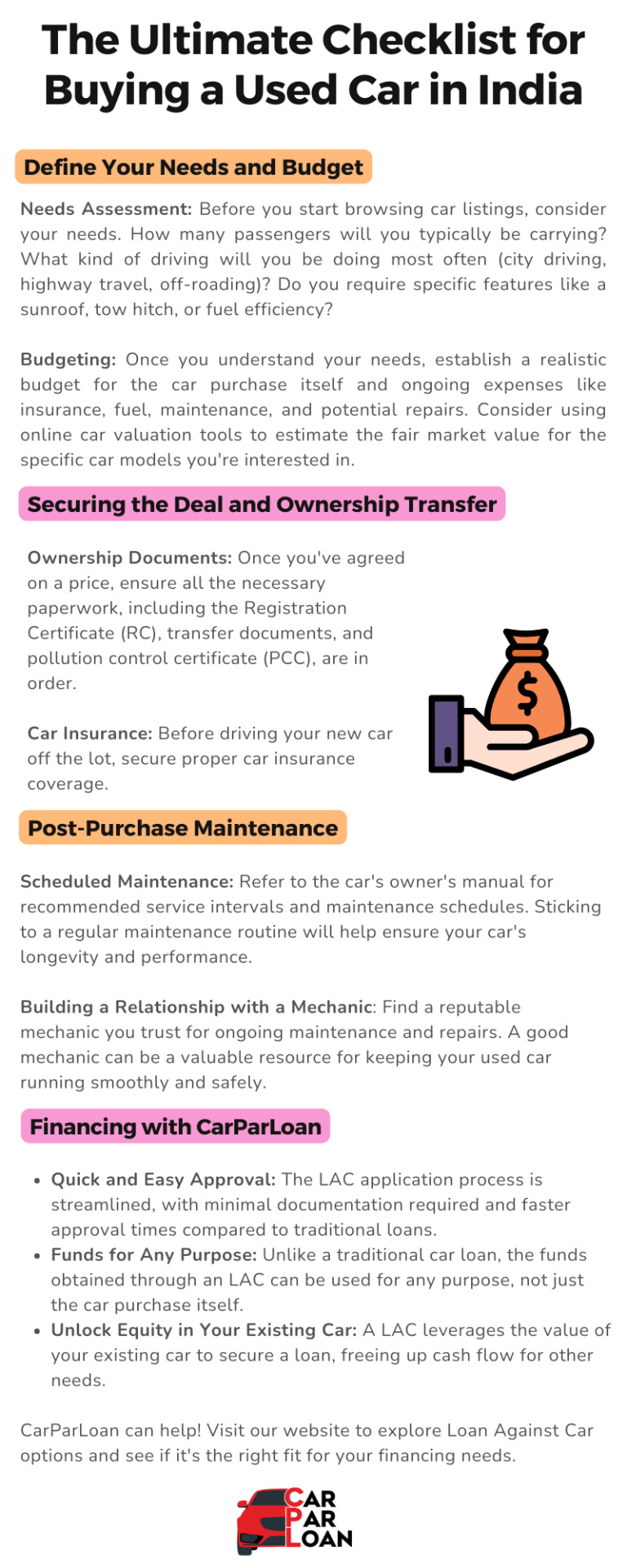#First Time Car Buyer Checklist
Explore tagged Tumblr posts
Text

0 notes
Text
Small Caravans: Ultimate Guide to Compact Adventure

In Australia's vast landscapes where dirt roads lead to breathtaking destinations, small caravans have become the golden ticket to freedom for modern explorers. At Swag Off-Road Campers, we've perfected the art of compact caravanning, crafting hybrids and pop-tops that deliver big adventures in small packages.
Whether you're a couple chasing sunset coasts or a family creating memories, our guide reveals why downsizing your caravan might be the best travel decision you'll ever make.
Why Small Caravans Are Dominating Australian Roads
Recent data from the Caravan Industry Association of Australia shows:
62% of new caravan buyers now opt for models under 5.5m
Small caravan sales have grown 28% since 2020
78% of owners report more frequent trips with compact rigs
Fuel savings average $1,200/year versus large caravans
"Our customers love that they can explore 90% more locations without sacrificing comfort," says Mark Taylor, Design Engineer at Swag Off-Road Campers.
Swag's Small Caravan Range: Built for Australian Conditions
1. The Wanderer Series (4.2m - 5.1m)
Perfect for couples
Tare weight: 1,100-1,400kg
Key features:
Off-grid capability (7 days)
Full ensuite options
Heavy-duty independent suspension
2. Family Trekker (5.8m Hybrid)
Sleeps 2 adults + 3 kids
Convertible dinette beds
200L water capacity
270° awning with walls
3. Extreme Off-Road Models
350mm ground clearance
Reinforced chassis
Arctic pack for alpine trips
33" tyre compatibility
Explore our complete small caravan guide for detailed comparisons.
5 Compelling Reasons to Go Small
1. Access More Locations
Fit into standard campsites (6m rule)
Navigate narrow forest tracks
Park in regular car spaces
2. Tow With More Vehicles
Caravan Size
Minimum Tow Vehicle
<1,500kg
Mid-size SUV (Pajero)
1,500-2,000kg
Ute (Ranger)
>2,000kg
LandCruiser
3. Lower Running Costs
35% better fuel efficiency
Reduced maintenance
Lower insurance premiums
4. Easier Maneuverability
Stress-free reversing
Less sway in crosswinds
Simple storage at home
5. Faster Setup
Be camp-ready in 5 minutes
Less time leveling
Minimal unpacking
Small Caravan vs Tent vs Large Caravan
Feature
Small Caravan
Tent
Large Caravan
Setup Time
5-10 mins
30-60 mins
15-30 mins
Weather Protection
Excellent
Poor
Excellent
Off-Road Ability
Great
Good
Limited
Storage Needs
Small
Minimal
Large
Average Cost
$45k-$75k
$1k-$5k
$80k-$150k
Customization Options for Compact Living
Smart Storage Solutions
Under-bed compartments
Fold-out kitchen extensions
Ceiling-mounted racks
Power & Water
Lithium battery packages
160W solar standard
Water purification systems
Climate Control
Truma air conditioning
Diesel heating options
Thermal pack upgrades
Case Study: Retirees' 6-Month Outback Trip
Challenges:
Needed to cross the Simpson Desert
Limited towing experience
Space for 12-week supplies
Our Solution:
SWAG 4.8m Off-Road Hybrid
300L combined water
400Ah lithium system
Result:
Completed 18,000km trouble-free
Camped in 46 remote locations
Still using 5 years later
Maintenance Tips for Small Caravans
Monthly Checks
Tyre pressure/condition
Brake operation
Sealant integrity
Pre-Trip Musts
Bearings repacked
Gas system tested
Weight distribution checked
Long-Term Care
Regular chassis washes
Canvas treatment
Suspension lubrication
NRMA Maintenance Guide provides detailed checklists.
The Swag Difference: Built Tough Down Under
Why our caravans stand out:
Australian-made chassis - Corrosion-resistant
Military-grade canvas - 10-year warranty
Local component sourcing - Easy repairs
Owner-designed - By adventurers, for adventurers
Financing Your Small Caravan
Purchase Options
Outright (Save $3k-$5k with cash)
Caravan Loans (5-7 year terms)
Novated Lease (Salary packaging)
Depreciation Benefits
Immediate 15-20% write-off
GST credits for businesses
Potential 100% first-year deduction
Top 5 Small Caravan Mistakes to Avoid
Overloading - Stay under GVM
Wrong Tow Vehicle - Check payload
Poor Packing - Weight distribution matters
Skipping Demo - Test before buying
Cheap Accessories - Buy quality once
Where to Travel with Your Compact Caravan
Best NSW Routes
Darling River Run
Snowy Mountains High Country
South Coast Beaches
Bucket-List Trips
Cape York (May-Oct)
Gibb River Road (Dry season)
Tasmania's West Coast
The Future of Small Caravans
Emerging trends:
Solar breakthroughs (Flexible panels)
Lightweight materials (Carbon fibre)
Smart systems (App-controlled)
Modular designs (Custom layouts)
Why Choose Swag Off-Road Campers?
25 years building adventure rigs
Tested in extreme conditions
Nationwide dealer network
Australian-owned and made
Take the Next Step Toward Adventure
Ready to experience the freedom of compact caravanning? Download our comprehensive small caravan guide or visit a Swag dealer to tour models in person.
For more touring inspiration:
Explore Australia
Campervan & Motorhome Club
4WD Touring Australia
0 notes
Text
Small Caravans: Ultimate Guide to Compact Adventure

In Australia's vast landscapes where dirt roads lead to breathtaking destinations, small caravans have become the golden ticket to freedom for modern explorers. At Swag Off-Road Campers, we've perfected the art of compact caravanning, crafting hybrids and pop-tops that deliver big adventures in small packages.
Whether you're a couple chasing sunset coasts or a family creating memories, our guide reveals why downsizing your caravan might be the best travel decision you'll ever make.
Why Small Caravans Are Dominating Australian Roads
Recent data from the Caravan Industry Association of Australia shows:
62% of new caravan buyers now opt for models under 5.5m
Small caravan sales have grown 28% since 2020
78% of owners report more frequent trips with compact rigs
Fuel savings average $1,200/year versus large caravans
"Our customers love that they can explore 90% more locations without sacrificing comfort," says Mark Taylor, Design Engineer at Swag Off-Road Campers.
Swag's Small Caravan Range: Built for Australian Conditions
1. The Wanderer Series (4.2m - 5.1m)
Perfect for couples
Tare weight: 1,100-1,400kg
Key features:
Off-grid capability (7 days)
Full ensuite options
Heavy-duty independent suspension
2. Family Trekker (5.8m Hybrid)
Sleeps 2 adults + 3 kids
Convertible dinette beds
200L water capacity
270° awning with walls
3. Extreme Off-Road Models
350mm ground clearance
Reinforced chassis
Arctic pack for alpine trips
33" tyre compatibility
Explore our complete small caravan guide for detailed comparisons.
5 Compelling Reasons to Go Small
1. Access More Locations
Fit into standard campsites (6m rule)
Navigate narrow forest tracks
Park in regular car spaces
2. Tow With More Vehicles
Caravan Size
Minimum Tow Vehicle
<1,500kg
Mid-size SUV (Pajero)
1,500-2,000kg
Ute (Ranger)
>2,000kg
LandCruiser
3. Lower Running Costs
35% better fuel efficiency
Reduced maintenance
Lower insurance premiums
4. Easier Maneuverability
Stress-free reversing
Less sway in crosswinds
Simple storage at home
5. Faster Setup
Be camp-ready in 5 minutes
Less time leveling
Minimal unpacking
Small Caravan vs Tent vs Large Caravan
Feature
Small Caravan
Tent
Large Caravan
Setup Time
5-10 mins
30-60 mins
15-30 mins
Weather Protection
Excellent
Poor
Excellent
Off-Road Ability
Great
Good
Limited
Storage Needs
Small
Minimal
Large
Average Cost
$45k-$75k
$1k-$5k
$80k-$150k
Customization Options for Compact Living
Smart Storage Solutions
Under-bed compartments
Fold-out kitchen extensions
Ceiling-mounted racks
Power & Water
Lithium battery packages
160W solar standard
Water purification systems
Climate Control
Truma air conditioning
Diesel heating options
Thermal pack upgrades
Case Study: Retirees' 6-Month Outback Trip
Challenges:
Needed to cross the Simpson Desert
Limited towing experience
Space for 12-week supplies
Our Solution:
SWAG 4.8m Off-Road Hybrid
300L combined water
400Ah lithium system
Result:
Completed 18,000km trouble-free
Camped in 46 remote locations
Still using 5 years later
Maintenance Tips for Small Caravans
Monthly Checks
Tyre pressure/condition
Brake operation
Sealant integrity
Pre-Trip Musts
Bearings repacked
Gas system tested
Weight distribution checked
Long-Term Care
Regular chassis washes
Canvas treatment
Suspension lubrication
NRMA Maintenance Guide provides detailed checklists.
The Swag Difference: Built Tough Down Under
Why our caravans stand out:
Australian-made chassis - Corrosion-resistant
Military-grade canvas - 10-year warranty
Local component sourcing - Easy repairs
Owner-designed - By adventurers, for adventurers
Financing Your Small Caravan
Purchase Options
Outright (Save $3k-$5k with cash)
Caravan Loans (5-7 year terms)
Novated Lease (Salary packaging)
Depreciation Benefits
Immediate 15-20% write-off
GST credits for businesses
Potential 100% first-year deduction
Top 5 Small Caravan Mistakes to Avoid
Overloading - Stay under GVM
Wrong Tow Vehicle - Check payload
Poor Packing - Weight distribution matters
Skipping Demo - Test before buying
Cheap Accessories - Buy quality once
Where to Travel with Your Compact Caravan
Best NSW Routes
Darling River Run
Snowy Mountains High Country
South Coast Beaches
Bucket-List Trips
Cape York (May-Oct)
Gibb River Road (Dry season)
Tasmania's West Coast
The Future of Small Caravans
Emerging trends:
Solar breakthroughs (Flexible panels)
Lightweight materials (Carbon fibre)
Smart systems (App-controlled)
Modular designs (Custom layouts)
Why Choose Swag Off-Road Campers?
25 years building adventure rigs
Tested in extreme conditions
Nationwide dealer network
Australian-owned and made
Take the Next Step Toward Adventure
Ready to experience the freedom of compact caravanning? Download our comprehensive small caravan guide or visit a Swag dealer to tour models in person.
For more touring inspiration:
Explore Australia
Campervan & Motorhome Club
4WD Touring Australia
0 notes
Text
Small Caravans: Ultimate Guide to Compact Adventure

In Australia's vast landscapes where dirt roads lead to breathtaking destinations, small caravans have become the golden ticket to freedom for modern explorers. At Swag Off-Road Campers, we've perfected the art of compact caravanning, crafting hybrids and pop-tops that deliver big adventures in small packages.
Whether you're a couple chasing sunset coasts or a family creating memories, our guide reveals why downsizing your caravan might be the best travel decision you'll ever make.
Why Small Caravans Are Dominating Australian Roads
Recent data from the Caravan Industry Association of Australia shows:
62% of new caravan buyers now opt for models under 5.5m
Small caravan sales have grown 28% since 2020
78% of owners report more frequent trips with compact rigs
Fuel savings average $1,200/year versus large caravans
"Our customers love that they can explore 90% more locations without sacrificing comfort," says Mark Taylor, Design Engineer at Swag Off-Road Campers.
Swag's Small Caravan Range: Built for Australian Conditions
1. The Wanderer Series (4.2m - 5.1m)
Perfect for couples
Tare weight: 1,100-1,400kg
Key features:
Off-grid capability (7 days)
Full ensuite options
Heavy-duty independent suspension
2. Family Trekker (5.8m Hybrid)
Sleeps 2 adults + 3 kids
Convertible dinette beds
200L water capacity
270° awning with walls
3. Extreme Off-Road Models
350mm ground clearance
Reinforced chassis
Arctic pack for alpine trips
33" tyre compatibility
Explore our complete small caravan guide for detailed comparisons.
5 Compelling Reasons to Go Small
1. Access More Locations
Fit into standard campsites (6m rule)
Navigate narrow forest tracks
Park in regular car spaces
2. Tow With More Vehicles
Caravan Size
Minimum Tow Vehicle
<1,500kg
Mid-size SUV (Pajero)
1,500-2,000kg
Ute (Ranger)
>2,000kg
LandCruiser
3. Lower Running Costs
35% better fuel efficiency
Reduced maintenance
Lower insurance premiums
4. Easier Maneuverability
Stress-free reversing
Less sway in crosswinds
Simple storage at home
5. Faster Setup
Be camp-ready in 5 minutes
Less time leveling
Minimal unpacking
Small Caravan vs Tent vs Large Caravan
Feature
Small Caravan
Tent
Large Caravan
Setup Time
5-10 mins
30-60 mins
15-30 mins
Weather Protection
Excellent
Poor
Excellent
Off-Road Ability
Great
Good
Limited
Storage Needs
Small
Minimal
Large
Average Cost
$45k-$75k
$1k-$5k
$80k-$150k
Customization Options for Compact Living
Smart Storage Solutions
Under-bed compartments
Fold-out kitchen extensions
Ceiling-mounted racks
Power & Water
Lithium battery packages
160W solar standard
Water purification systems
Climate Control
Truma air conditioning
Diesel heating options
Thermal pack upgrades
Case Study: Retirees' 6-Month Outback Trip
Challenges:
Needed to cross the Simpson Desert
Limited towing experience
Space for 12-week supplies
Our Solution:
SWAG 4.8m Off-Road Hybrid
300L combined water
400Ah lithium system
Result:
Completed 18,000km trouble-free
Camped in 46 remote locations
Still using 5 years later
Maintenance Tips for Small Caravans
Monthly Checks
Tyre pressure/condition
Brake operation
Sealant integrity
Pre-Trip Musts
Bearings repacked
Gas system tested
Weight distribution checked
Long-Term Care
Regular chassis washes
Canvas treatment
Suspension lubrication
NRMA Maintenance Guide provides detailed checklists.
The Swag Difference: Built Tough Down Under
Why our caravans stand out:
Australian-made chassis - Corrosion-resistant
Military-grade canvas - 10-year warranty
Local component sourcing - Easy repairs
Owner-designed - By adventurers, for adventurers
Financing Your Small Caravan
Purchase Options
Outright (Save $3k-$5k with cash)
Caravan Loans (5-7 year terms)
Novated Lease (Salary packaging)
Depreciation Benefits
Immediate 15-20% write-off
GST credits for businesses
Potential 100% first-year deduction
Top 5 Small Caravan Mistakes to Avoid
Overloading - Stay under GVM
Wrong Tow Vehicle - Check payload
Poor Packing - Weight distribution matters
Skipping Demo - Test before buying
Cheap Accessories - Buy quality once
Where to Travel with Your Compact Caravan
Best NSW Routes
Darling River Run
Snowy Mountains High Country
South Coast Beaches
Bucket-List Trips
Cape York (May-Oct)
Gibb River Road (Dry season)
Tasmania's West Coast
The Future of Small Caravans
Emerging trends:
Solar breakthroughs (Flexible panels)
Lightweight materials (Carbon fibre)
Smart systems (App-controlled)
Modular designs (Custom layouts)
Why Choose Swag Off-Road Campers?
25 years building adventure rigs
Tested in extreme conditions
Nationwide dealer network
Australian-owned and made
Take the Next Step Toward Adventure
Ready to experience the freedom of compact caravanning? Download our comprehensive small caravan guide or visit a Swag dealer to tour models in person.
For more touring inspiration:
Explore Australia
Campervan & Motorhome Club
4WD Touring Australia
0 notes
Text
Small Caravans: Ultimate Guide to Compact Adventure

In Australia's vast landscapes where dirt roads lead to breathtaking destinations, small caravans have become the golden ticket to freedom for modern explorers. At Swag Off-Road Campers, we've perfected the art of compact caravanning, crafting hybrids and pop-tops that deliver big adventures in small packages.
Whether you're a couple chasing sunset coasts or a family creating memories, our guide reveals why downsizing your caravan might be the best travel decision you'll ever make.
Why Small Caravans Are Dominating Australian Roads
Recent data from the Caravan Industry Association of Australia shows:
62% of new caravan buyers now opt for models under 5.5m
Small caravan sales have grown 28% since 2020
78% of owners report more frequent trips with compact rigs
Fuel savings average $1,200/year versus large caravans
"Our customers love that they can explore 90% more locations without sacrificing comfort," says Mark Taylor, Design Engineer at Swag Off-Road Campers.
Swag's Small Caravan Range: Built for Australian Conditions
1. The Wanderer Series (4.2m - 5.1m)
Perfect for couples
Tare weight: 1,100-1,400kg
Key features:
Off-grid capability (7 days)
Full ensuite options
Heavy-duty independent suspension
2. Family Trekker (5.8m Hybrid)
Sleeps 2 adults + 3 kids
Convertible dinette beds
200L water capacity
270° awning with walls
3. Extreme Off-Road Models
350mm ground clearance
Reinforced chassis
Arctic pack for alpine trips
33" tyre compatibility
Explore our complete small caravan guide for detailed comparisons.
5 Compelling Reasons to Go Small
1. Access More Locations
Fit into standard campsites (6m rule)
Navigate narrow forest tracks
Park in regular car spaces
2. Tow With More Vehicles
Caravan Size
Minimum Tow Vehicle
<1,500kg
Mid-size SUV (Pajero)
1,500-2,000kg
Ute (Ranger)
>2,000kg
LandCruiser
3. Lower Running Costs
35% better fuel efficiency
Reduced maintenance
Lower insurance premiums
4. Easier Maneuverability
Stress-free reversing
Less sway in crosswinds
Simple storage at home
5. Faster Setup
Be camp-ready in 5 minutes
Less time leveling
Minimal unpacking
Small Caravan vs Tent vs Large Caravan
Feature
Small Caravan
Tent
Large Caravan
Setup Time
5-10 mins
30-60 mins
15-30 mins
Weather Protection
Excellent
Poor
Excellent
Off-Road Ability
Great
Good
Limited
Storage Needs
Small
Minimal
Large
Average Cost
$45k-$75k
$1k-$5k
$80k-$150k
Customization Options for Compact Living
Smart Storage Solutions
Under-bed compartments
Fold-out kitchen extensions
Ceiling-mounted racks
Power & Water
Lithium battery packages
160W solar standard
Water purification systems
Climate Control
Truma air conditioning
Diesel heating options
Thermal pack upgrades
Case Study: Retirees' 6-Month Outback Trip
Challenges:
Needed to cross the Simpson Desert
Limited towing experience
Space for 12-week supplies
Our Solution:
SWAG 4.8m Off-Road Hybrid
300L combined water
400Ah lithium system
Result:
Completed 18,000km trouble-free
Camped in 46 remote locations
Still using 5 years later
Maintenance Tips for Small Caravans
Monthly Checks
Tyre pressure/condition
Brake operation
Sealant integrity
Pre-Trip Musts
Bearings repacked
Gas system tested
Weight distribution checked
Long-Term Care
Regular chassis washes
Canvas treatment
Suspension lubrication
NRMA Maintenance Guide provides detailed checklists.
The Swag Difference: Built Tough Down Under
Why our caravans stand out:
Australian-made chassis - Corrosion-resistant
Military-grade canvas - 10-year warranty
Local component sourcing - Easy repairs
Owner-designed - By adventurers, for adventurers
Financing Your Small Caravan
Purchase Options
Outright (Save $3k-$5k with cash)
Caravan Loans (5-7 year terms)
Novated Lease (Salary packaging)
Depreciation Benefits
Immediate 15-20% write-off
GST credits for businesses
Potential 100% first-year deduction
Top 5 Small Caravan Mistakes to Avoid
Overloading - Stay under GVM
Wrong Tow Vehicle - Check payload
Poor Packing - Weight distribution matters
Skipping Demo - Test before buying
Cheap Accessories - Buy quality once
Where to Travel with Your Compact Caravan
Best NSW Routes
Darling River Run
Snowy Mountains High Country
South Coast Beaches
Bucket-List Trips
Cape York (May-Oct)
Gibb River Road (Dry season)
Tasmania's West Coast
The Future of Small Caravans
Emerging trends:
Solar breakthroughs (Flexible panels)
Lightweight materials (Carbon fibre)
Smart systems (App-controlled)
Modular designs (Custom layouts)
Why Choose Swag Off-Road Campers?
25 years building adventure rigs
Tested in extreme conditions
Nationwide dealer network
Australian-owned and made
Take the Next Step Toward Adventure
Ready to experience the freedom of compact caravanning? Download our comprehensive small caravan guide or visit a Swag dealer to tour models in person.
For more touring inspiration:
Explore Australia
Campervan & Motorhome Club
4WD Touring Australia
0 notes
Text
Small Caravans: Ultimate Guide to Compact Adventure

In Australia's vast landscapes where dirt roads lead to breathtaking destinations, small caravans have become the golden ticket to freedom for modern explorers. At Swag Off-Road Campers, we've perfected the art of compact caravanning, crafting hybrids and pop-tops that deliver big adventures in small packages.
Whether you're a couple chasing sunset coasts or a family creating memories, our guide reveals why downsizing your caravan might be the best travel decision you'll ever make.
Why Small Caravans Are Dominating Australian Roads
Recent data from the Caravan Industry Association of Australia shows:
62% of new caravan buyers now opt for models under 5.5m
Small caravan sales have grown 28% since 2020
78% of owners report more frequent trips with compact rigs
Fuel savings average $1,200/year versus large caravans
"Our customers love that they can explore 90% more locations without sacrificing comfort," says Mark Taylor, Design Engineer at Swag Off-Road Campers.
Swag's Small Caravan Range: Built for Australian Conditions
1. The Wanderer Series (4.2m - 5.1m)
Perfect for couples
Tare weight: 1,100-1,400kg
Key features:
Off-grid capability (7 days)
Full ensuite options
Heavy-duty independent suspension
2. Family Trekker (5.8m Hybrid)
Sleeps 2 adults + 3 kids
Convertible dinette beds
200L water capacity
270° awning with walls
3. Extreme Off-Road Models
350mm ground clearance
Reinforced chassis
Arctic pack for alpine trips
33" tyre compatibility
Explore our complete small caravan guide for detailed comparisons.
5 Compelling Reasons to Go Small
1. Access More Locations
Fit into standard campsites (6m rule)
Navigate narrow forest tracks
Park in regular car spaces
2. Tow With More Vehicles
Caravan Size
Minimum Tow Vehicle
<1,500kg
Mid-size SUV (Pajero)
1,500-2,000kg
Ute (Ranger)
>2,000kg
LandCruiser
3. Lower Running Costs
35% better fuel efficiency
Reduced maintenance
Lower insurance premiums
4. Easier Maneuverability
Stress-free reversing
Less sway in crosswinds
Simple storage at home
5. Faster Setup
Be camp-ready in 5 minutes
Less time leveling
Minimal unpacking
Small Caravan vs Tent vs Large Caravan
Feature
Small Caravan
Tent
Large Caravan
Setup Time
5-10 mins
30-60 mins
15-30 mins
Weather Protection
Excellent
Poor
Excellent
Off-Road Ability
Great
Good
Limited
Storage Needs
Small
Minimal
Large
Average Cost
$45k-$75k
$1k-$5k
$80k-$150k
Customization Options for Compact Living
Smart Storage Solutions
Under-bed compartments
Fold-out kitchen extensions
Ceiling-mounted racks
Power & Water
Lithium battery packages
160W solar standard
Water purification systems
Climate Control
Truma air conditioning
Diesel heating options
Thermal pack upgrades
Case Study: Retirees' 6-Month Outback Trip
Challenges:
Needed to cross the Simpson Desert
Limited towing experience
Space for 12-week supplies
Our Solution:
SWAG 4.8m Off-Road Hybrid
300L combined water
400Ah lithium system
Result:
Completed 18,000km trouble-free
Camped in 46 remote locations
Still using 5 years later
Maintenance Tips for Small Caravans
Monthly Checks
Tyre pressure/condition
Brake operation
Sealant integrity
Pre-Trip Musts
Bearings repacked
Gas system tested
Weight distribution checked
Long-Term Care
Regular chassis washes
Canvas treatment
Suspension lubrication
NRMA Maintenance Guide provides detailed checklists.
The Swag Difference: Built Tough Down Under
Why our caravans stand out:
Australian-made chassis - Corrosion-resistant
Military-grade canvas - 10-year warranty
Local component sourcing - Easy repairs
Owner-designed - By adventurers, for adventurers
Financing Your Small Caravan
Purchase Options
Outright (Save $3k-$5k with cash)
Caravan Loans (5-7 year terms)
Novated Lease (Salary packaging)
Depreciation Benefits
Immediate 15-20% write-off
GST credits for businesses
Potential 100% first-year deduction
Top 5 Small Caravan Mistakes to Avoid
Overloading - Stay under GVM
Wrong Tow Vehicle - Check payload
Poor Packing - Weight distribution matters
Skipping Demo - Test before buying
Cheap Accessories - Buy quality once
Where to Travel with Your Compact Caravan
Best NSW Routes
Darling River Run
Snowy Mountains High Country
South Coast Beaches
Bucket-List Trips
Cape York (May-Oct)
Gibb River Road (Dry season)
Tasmania's West Coast
The Future of Small Caravans
Emerging trends:
Solar breakthroughs (Flexible panels)
Lightweight materials (Carbon fibre)
Smart systems (App-controlled)
Modular designs (Custom layouts)
Why Choose Swag Off-Road Campers?
25 years building adventure rigs
Tested in extreme conditions
Nationwide dealer network
Australian-owned and made
Take the Next Step Toward Adventure
Ready to experience the freedom of compact caravanning? Download our comprehensive small caravan guide or visit a Swag dealer to tour models in person.
For more touring inspiration:
Explore Australia
Campervan & Motorhome Club
4WD Touring Australia
0 notes
Text
Small Caravans: Ultimate Guide to Compact Adventure

In Australia's vast landscapes where dirt roads lead to breathtaking destinations, small caravans have become the golden ticket to freedom for modern explorers. At Swag Off-Road Campers, we've perfected the art of compact caravanning, crafting hybrids and pop-tops that deliver big adventures in small packages.
Whether you're a couple chasing sunset coasts or a family creating memories, our guide reveals why downsizing your caravan might be the best travel decision you'll ever make.
Why Small Caravans Are Dominating Australian Roads
Recent data from the Caravan Industry Association of Australia shows:
62% of new caravan buyers now opt for models under 5.5m
Small caravan sales have grown 28% since 2020
78% of owners report more frequent trips with compact rigs
Fuel savings average $1,200/year versus large caravans
"Our customers love that they can explore 90% more locations without sacrificing comfort," says Mark Taylor, Design Engineer at Swag Off-Road Campers.
Swag's Small Caravan Range: Built for Australian Conditions
1. The Wanderer Series (4.2m - 5.1m)
Perfect for couples
Tare weight: 1,100-1,400kg
Key features:
Off-grid capability (7 days)
Full ensuite options
Heavy-duty independent suspension
2. Family Trekker (5.8m Hybrid)
Sleeps 2 adults + 3 kids
Convertible dinette beds
200L water capacity
270° awning with walls
3. Extreme Off-Road Models
350mm ground clearance
Reinforced chassis
Arctic pack for alpine trips
33" tyre compatibility
Explore our complete small caravan guide for detailed comparisons.
5 Compelling Reasons to Go Small
1. Access More Locations
Fit into standard campsites (6m rule)
Navigate narrow forest tracks
Park in regular car spaces
2. Tow With More Vehicles
Caravan Size
Minimum Tow Vehicle
<1,500kg
Mid-size SUV (Pajero)
1,500-2,000kg
Ute (Ranger)
>2,000kg
LandCruiser
3. Lower Running Costs
35% better fuel efficiency
Reduced maintenance
Lower insurance premiums
4. Easier Maneuverability
Stress-free reversing
Less sway in crosswinds
Simple storage at home
5. Faster Setup
Be camp-ready in 5 minutes
Less time leveling
Minimal unpacking
Small Caravan vs Tent vs Large Caravan
Feature
Small Caravan
Tent
Large Caravan
Setup Time
5-10 mins
30-60 mins
15-30 mins
Weather Protection
Excellent
Poor
Excellent
Off-Road Ability
Great
Good
Limited
Storage Needs
Small
Minimal
Large
Average Cost
$45k-$75k
$1k-$5k
$80k-$150k
Customization Options for Compact Living
Smart Storage Solutions
Under-bed compartments
Fold-out kitchen extensions
Ceiling-mounted racks
Power & Water
Lithium battery packages
160W solar standard
Water purification systems
Climate Control
Truma air conditioning
Diesel heating options
Thermal pack upgrades
Case Study: Retirees' 6-Month Outback Trip
Challenges:
Needed to cross the Simpson Desert
Limited towing experience
Space for 12-week supplies
Our Solution:
SWAG 4.8m Off-Road Hybrid
300L combined water
400Ah lithium system
Result:
Completed 18,000km trouble-free
Camped in 46 remote locations
Still using 5 years later
Maintenance Tips for Small Caravans
Monthly Checks
Tyre pressure/condition
Brake operation
Sealant integrity
Pre-Trip Musts
Bearings repacked
Gas system tested
Weight distribution checked
Long-Term Care
Regular chassis washes
Canvas treatment
Suspension lubrication
NRMA Maintenance Guide provides detailed checklists.
The Swag Difference: Built Tough Down Under
Why our caravans stand out:
Australian-made chassis - Corrosion-resistant
Military-grade canvas - 10-year warranty
Local component sourcing - Easy repairs
Owner-designed - By adventurers, for adventurers
Financing Your Small Caravan
Purchase Options
Outright (Save $3k-$5k with cash)
Caravan Loans (5-7 year terms)
Novated Lease (Salary packaging)
Depreciation Benefits
Immediate 15-20% write-off
GST credits for businesses
Potential 100% first-year deduction
Top 5 Small Caravan Mistakes to Avoid
Overloading - Stay under GVM
Wrong Tow Vehicle - Check payload
Poor Packing - Weight distribution matters
Skipping Demo - Test before buying
Cheap Accessories - Buy quality once
Where to Travel with Your Compact Caravan
Best NSW Routes
Darling River Run
Snowy Mountains High Country
South Coast Beaches
Bucket-List Trips
Cape York (May-Oct)
Gibb River Road (Dry season)
Tasmania's West Coast
The Future of Small Caravans
Emerging trends:
Solar breakthroughs (Flexible panels)
Lightweight materials (Carbon fibre)
Smart systems (App-controlled)
Modular designs (Custom layouts)
Why Choose Swag Off-Road Campers?
25 years building adventure rigs
Tested in extreme conditions
Nationwide dealer network
Australian-owned and made
Take the Next Step Toward Adventure
Ready to experience the freedom of compact caravanning? Download our comprehensive small caravan guide or visit a Swag dealer to tour models in person.
For more touring inspiration:
Explore Australia
Campervan & Motorhome Club
4WD Touring Australia
0 notes
Text
Small Caravans: Ultimate Guide to Compact Adventure

In Australia's vast landscapes where dirt roads lead to breathtaking destinations, small caravans have become the golden ticket to freedom for modern explorers. At Swag Off-Road Campers, we've perfected the art of compact caravanning, crafting hybrids and pop-tops that deliver big adventures in small packages.
Whether you're a couple chasing sunset coasts or a family creating memories, our guide reveals why downsizing your caravan might be the best travel decision you'll ever make.
Why Small Caravans Are Dominating Australian Roads
Recent data from the Caravan Industry Association of Australia shows:
62% of new caravan buyers now opt for models under 5.5m
Small caravan sales have grown 28% since 2020
78% of owners report more frequent trips with compact rigs
Fuel savings average $1,200/year versus large caravans
"Our customers love that they can explore 90% more locations without sacrificing comfort," says Mark Taylor, Design Engineer at Swag Off-Road Campers.
Swag's Small Caravan Range: Built for Australian Conditions
1. The Wanderer Series (4.2m - 5.1m)
Perfect for couples
Tare weight: 1,100-1,400kg
Key features:
Off-grid capability (7 days)
Full ensuite options
Heavy-duty independent suspension
2. Family Trekker (5.8m Hybrid)
Sleeps 2 adults + 3 kids
Convertible dinette beds
200L water capacity
270° awning with walls
3. Extreme Off-Road Models
350mm ground clearance
Reinforced chassis
Arctic pack for alpine trips
33" tyre compatibility
Explore our complete small caravan guide for detailed comparisons.
5 Compelling Reasons to Go Small
1. Access More Locations
Fit into standard campsites (6m rule)
Navigate narrow forest tracks
Park in regular car spaces
2. Tow With More Vehicles
Caravan Size
Minimum Tow Vehicle
<1,500kg
Mid-size SUV (Pajero)
1,500-2,000kg
Ute (Ranger)
>2,000kg
LandCruiser
3. Lower Running Costs
35% better fuel efficiency
Reduced maintenance
Lower insurance premiums
4. Easier Maneuverability
Stress-free reversing
Less sway in crosswinds
Simple storage at home
5. Faster Setup
Be camp-ready in 5 minutes
Less time leveling
Minimal unpacking
Small Caravan vs Tent vs Large Caravan
Feature
Small Caravan
Tent
Large Caravan
Setup Time
5-10 mins
30-60 mins
15-30 mins
Weather Protection
Excellent
Poor
Excellent
Off-Road Ability
Great
Good
Limited
Storage Needs
Small
Minimal
Large
Average Cost
$45k-$75k
$1k-$5k
$80k-$150k
Customization Options for Compact Living
Smart Storage Solutions
Under-bed compartments
Fold-out kitchen extensions
Ceiling-mounted racks
Power & Water
Lithium battery packages
160W solar standard
Water purification systems
Climate Control
Truma air conditioning
Diesel heating options
Thermal pack upgrades
Case Study: Retirees' 6-Month Outback Trip
Challenges:
Needed to cross the Simpson Desert
Limited towing experience
Space for 12-week supplies
Our Solution:
SWAG 4.8m Off-Road Hybrid
300L combined water
400Ah lithium system
Result:
Completed 18,000km trouble-free
Camped in 46 remote locations
Still using 5 years later
Maintenance Tips for Small Caravans
Monthly Checks
Tyre pressure/condition
Brake operation
Sealant integrity
Pre-Trip Musts
Bearings repacked
Gas system tested
Weight distribution checked
Long-Term Care
Regular chassis washes
Canvas treatment
Suspension lubrication
NRMA Maintenance Guide provides detailed checklists.
The Swag Difference: Built Tough Down Under
Why our caravans stand out:
Australian-made chassis - Corrosion-resistant
Military-grade canvas - 10-year warranty
Local component sourcing - Easy repairs
Owner-designed - By adventurers, for adventurers
Financing Your Small Caravan
Purchase Options
Outright (Save $3k-$5k with cash)
Caravan Loans (5-7 year terms)
Novated Lease (Salary packaging)
Depreciation Benefits
Immediate 15-20% write-off
GST credits for businesses
Potential 100% first-year deduction
Top 5 Small Caravan Mistakes to Avoid
Overloading - Stay under GVM
Wrong Tow Vehicle - Check payload
Poor Packing - Weight distribution matters
Skipping Demo - Test before buying
Cheap Accessories - Buy quality once
Where to Travel with Your Compact Caravan
Best NSW Routes
Darling River Run
Snowy Mountains High Country
South Coast Beaches
Bucket-List Trips
Cape York (May-Oct)
Gibb River Road (Dry season)
Tasmania's West Coast
The Future of Small Caravans
Emerging trends:
Solar breakthroughs (Flexible panels)
Lightweight materials (Carbon fibre)
Smart systems (App-controlled)
Modular designs (Custom layouts)
Why Choose Swag Off-Road Campers?
25 years building adventure rigs
Tested in extreme conditions
Nationwide dealer network
Australian-owned and made
Take the Next Step Toward Adventure
Ready to experience the freedom of compact caravanning? Download our comprehensive small caravan guide or visit a Swag dealer to tour models in person.
For more touring inspiration:
Explore Australia
Campervan & Motorhome Club
4WD Touring Australia
0 notes
Text
Small Caravans: Ultimate Guide to Compact Adventure

In Australia's vast landscapes where dirt roads lead to breathtaking destinations, small caravans have become the golden ticket to freedom for modern explorers. At Swag Off-Road Campers, we've perfected the art of compact caravanning, crafting hybrids and pop-tops that deliver big adventures in small packages.
Whether you're a couple chasing sunset coasts or a family creating memories, our guide reveals why downsizing your caravan might be the best travel decision you'll ever make.
Why Small Caravans Are Dominating Australian Roads
Recent data from the Caravan Industry Association of Australia shows:
62% of new caravan buyers now opt for models under 5.5m
Small caravan sales have grown 28% since 2020
78% of owners report more frequent trips with compact rigs
Fuel savings average $1,200/year versus large caravans
"Our customers love that they can explore 90% more locations without sacrificing comfort," says Mark Taylor, Design Engineer at Swag Off-Road Campers.
Swag's Small Caravan Range: Built for Australian Conditions
1. The Wanderer Series (4.2m - 5.1m)
Perfect for couples
Tare weight: 1,100-1,400kg
Key features:
Off-grid capability (7 days)
Full ensuite options
Heavy-duty independent suspension
2. Family Trekker (5.8m Hybrid)
Sleeps 2 adults + 3 kids
Convertible dinette beds
200L water capacity
270° awning with walls
3. Extreme Off-Road Models
350mm ground clearance
Reinforced chassis
Arctic pack for alpine trips
33" tyre compatibility
Explore our complete small caravan guide for detailed comparisons.
5 Compelling Reasons to Go Small
1. Access More Locations
Fit into standard campsites (6m rule)
Navigate narrow forest tracks
Park in regular car spaces
2. Tow With More Vehicles
Caravan Size
Minimum Tow Vehicle
<1,500kg
Mid-size SUV (Pajero)
1,500-2,000kg
Ute (Ranger)
>2,000kg
LandCruiser
3. Lower Running Costs
35% better fuel efficiency
Reduced maintenance
Lower insurance premiums
4. Easier Maneuverability
Stress-free reversing
Less sway in crosswinds
Simple storage at home
5. Faster Setup
Be camp-ready in 5 minutes
Less time leveling
Minimal unpacking
Small Caravan vs Tent vs Large Caravan
Feature
Small Caravan
Tent
Large Caravan
Setup Time
5-10 mins
30-60 mins
15-30 mins
Weather Protection
Excellent
Poor
Excellent
Off-Road Ability
Great
Good
Limited
Storage Needs
Small
Minimal
Large
Average Cost
$45k-$75k
$1k-$5k
$80k-$150k
Customization Options for Compact Living
Smart Storage Solutions
Under-bed compartments
Fold-out kitchen extensions
Ceiling-mounted racks
Power & Water
Lithium battery packages
160W solar standard
Water purification systems
Climate Control
Truma air conditioning
Diesel heating options
Thermal pack upgrades
Case Study: Retirees' 6-Month Outback Trip
Challenges:
Needed to cross the Simpson Desert
Limited towing experience
Space for 12-week supplies
Our Solution:
SWAG 4.8m Off-Road Hybrid
300L combined water
400Ah lithium system
Result:
Completed 18,000km trouble-free
Camped in 46 remote locations
Still using 5 years later
Maintenance Tips for Small Caravans
Monthly Checks
Tyre pressure/condition
Brake operation
Sealant integrity
Pre-Trip Musts
Bearings repacked
Gas system tested
Weight distribution checked
Long-Term Care
Regular chassis washes
Canvas treatment
Suspension lubrication
NRMA Maintenance Guide provides detailed checklists.
The Swag Difference: Built Tough Down Under
Why our caravans stand out:
Australian-made chassis - Corrosion-resistant
Military-grade canvas - 10-year warranty
Local component sourcing - Easy repairs
Owner-designed - By adventurers, for adventurers
Financing Your Small Caravan
Purchase Options
Outright (Save $3k-$5k with cash)
Caravan Loans (5-7 year terms)
Novated Lease (Salary packaging)
Depreciation Benefits
Immediate 15-20% write-off
GST credits for businesses
Potential 100% first-year deduction
Top 5 Small Caravan Mistakes to Avoid
Overloading - Stay under GVM
Wrong Tow Vehicle - Check payload
Poor Packing - Weight distribution matters
Skipping Demo - Test before buying
Cheap Accessories - Buy quality once
Where to Travel with Your Compact Caravan
Best NSW Routes
Darling River Run
Snowy Mountains High Country
South Coast Beaches
Bucket-List Trips
Cape York (May-Oct)
Gibb River Road (Dry season)
Tasmania's West Coast
The Future of Small Caravans
Emerging trends:
Solar breakthroughs (Flexible panels)
Lightweight materials (Carbon fibre)
Smart systems (App-controlled)
Modular designs (Custom layouts)
Why Choose Swag Off-Road Campers?
25 years building adventure rigs
Tested in extreme conditions
Nationwide dealer network
Australian-owned and made
Take the Next Step Toward Adventure
Ready to experience the freedom of compact caravanning? Download our comprehensive small caravan guide or visit a Swag dealer to tour models in person.
For more touring inspiration:
Explore Australia
Campervan & Motorhome Club
4WD Touring Australia
0 notes
Text
Small Caravans: Ultimate Guide to Compact Adventure

In Australia's vast landscapes where dirt roads lead to breathtaking destinations, small caravans have become the golden ticket to freedom for modern explorers. At Swag Off-Road Campers, we've perfected the art of compact caravanning, crafting hybrids and pop-tops that deliver big adventures in small packages.
Whether you're a couple chasing sunset coasts or a family creating memories, our guide reveals why downsizing your caravan might be the best travel decision you'll ever make.
Why Small Caravans Are Dominating Australian Roads
Recent data from the Caravan Industry Association of Australia shows:
62% of new caravan buyers now opt for models under 5.5m
Small caravan sales have grown 28% since 2020
78% of owners report more frequent trips with compact rigs
Fuel savings average $1,200/year versus large caravans
"Our customers love that they can explore 90% more locations without sacrificing comfort," says Mark Taylor, Design Engineer at Swag Off-Road Campers.
Swag's Small Caravan Range: Built for Australian Conditions
1. The Wanderer Series (4.2m - 5.1m)
Perfect for couples
Tare weight: 1,100-1,400kg
Key features:
Off-grid capability (7 days)
Full ensuite options
Heavy-duty independent suspension
2. Family Trekker (5.8m Hybrid)
Sleeps 2 adults + 3 kids
Convertible dinette beds
200L water capacity
270° awning with walls
3. Extreme Off-Road Models
350mm ground clearance
Reinforced chassis
Arctic pack for alpine trips
33" tyre compatibility
Explore our complete small caravan guide for detailed comparisons.
5 Compelling Reasons to Go Small
1. Access More Locations
Fit into standard campsites (6m rule)
Navigate narrow forest tracks
Park in regular car spaces
2. Tow With More Vehicles
Caravan Size
Minimum Tow Vehicle
<1,500kg
Mid-size SUV (Pajero)
1,500-2,000kg
Ute (Ranger)
>2,000kg
LandCruiser
3. Lower Running Costs
35% better fuel efficiency
Reduced maintenance
Lower insurance premiums
4. Easier Maneuverability
Stress-free reversing
Less sway in crosswinds
Simple storage at home
5. Faster Setup
Be camp-ready in 5 minutes
Less time leveling
Minimal unpacking
Small Caravan vs Tent vs Large Caravan
Feature
Small Caravan
Tent
Large Caravan
Setup Time
5-10 mins
30-60 mins
15-30 mins
Weather Protection
Excellent
Poor
Excellent
Off-Road Ability
Great
Good
Limited
Storage Needs
Small
Minimal
Large
Average Cost
$45k-$75k
$1k-$5k
$80k-$150k
Customization Options for Compact Living
Smart Storage Solutions
Under-bed compartments
Fold-out kitchen extensions
Ceiling-mounted racks
Power & Water
Lithium battery packages
160W solar standard
Water purification systems
Climate Control
Truma air conditioning
Diesel heating options
Thermal pack upgrades
Case Study: Retirees' 6-Month Outback Trip
Challenges:
Needed to cross the Simpson Desert
Limited towing experience
Space for 12-week supplies
Our Solution:
SWAG 4.8m Off-Road Hybrid
300L combined water
400Ah lithium system
Result:
Completed 18,000km trouble-free
Camped in 46 remote locations
Still using 5 years later
Maintenance Tips for Small Caravans
Monthly Checks
Tyre pressure/condition
Brake operation
Sealant integrity
Pre-Trip Musts
Bearings repacked
Gas system tested
Weight distribution checked
Long-Term Care
Regular chassis washes
Canvas treatment
Suspension lubrication
NRMA Maintenance Guide provides detailed checklists.
The Swag Difference: Built Tough Down Under
Why our caravans stand out:
Australian-made chassis - Corrosion-resistant
Military-grade canvas - 10-year warranty
Local component sourcing - Easy repairs
Owner-designed - By adventurers, for adventurers
Financing Your Small Caravan
Purchase Options
Outright (Save $3k-$5k with cash)
Caravan Loans (5-7 year terms)
Novated Lease (Salary packaging)
Depreciation Benefits
Immediate 15-20% write-off
GST credits for businesses
Potential 100% first-year deduction
Top 5 Small Caravan Mistakes to Avoid
Overloading - Stay under GVM
Wrong Tow Vehicle - Check payload
Poor Packing - Weight distribution matters
Skipping Demo - Test before buying
Cheap Accessories - Buy quality once
Where to Travel with Your Compact Caravan
Best NSW Routes
Darling River Run
Snowy Mountains High Country
South Coast Beaches
Bucket-List Trips
Cape York (May-Oct)
Gibb River Road (Dry season)
Tasmania's West Coast
The Future of Small Caravans
Emerging trends:
Solar breakthroughs (Flexible panels)
Lightweight materials (Carbon fibre)
Smart systems (App-controlled)
Modular designs (Custom layouts)
Why Choose Swag Off-Road Campers?
25 years building adventure rigs
Tested in extreme conditions
Nationwide dealer network
Australian-owned and made
Take the Next Step Toward Adventure
Ready to experience the freedom of compact caravanning? Download our comprehensive small caravan guide or visit a Swag dealer to tour models in person.
For more touring inspiration:
Explore Australia
Campervan & Motorhome Club
4WD Touring Australia
0 notes
Text

#Apply for Car Loan#Best Car Loan#Car Loan#Car Par Loan#First Time Car Buyer Checklist#Used Car Loan#Used Car Loan Online
0 notes
Text
Why M3M Jewel’s Parking Reflects Shopper Convenience Trends
When you wonder what makes the destination fabulous, you can roam stylish stores, big brand names and many people. But there is something else that creates a big difference - cooking. Yes, simple parking can affect something where people choose to shop, eat or open business. And M3M Jewel on MG Road, Gurgaon, becomes perfect.
Gurgaon shopping view is increasing - and therefore better parking is required
Gurgaon has become a major shopping and trade center. With its long buildings, busy offices and modern lifestyle, it attracts thousands of visitors every day. But this growth also brings challenges, especially with parking. Many malls and shopping areas still struggle to manage the number of vehicles, which leads to long waits and unhappy visitors.
M3M Jewel Office Spaces provides a smart solution. It has a well-employed multi-level parking area that makes an easy and smooth attack. Whether it is a journey of a quick working day or outing over the weekend, the parking should be simple and stress-free here.

Good parking helps everyone- Shoppers, business and investors
For shopkeepers
No one likes to driving in circles in search of a place. Easy parking means that visitors can spend more time to enjoy their shopping and give less time to worry about their cars. This improves their overall experience.
For retailers and brands
Shops benefit when people can get out and out without any trouble. Easy parking increases the time to spend time, which often leads to more sales. This is why top national and international brands seek places like M3M Jewel.
Many retail locations decrease during busy times - such as weekends, holidays, or large brand events - because parking becomes a major problem. But M3M Jewel Investment is made differently. Its smart multi-level parking design easily handles heavy traffic. Shopkeepers, offices are separate areas for visitors and valet services, so everything flows smoothly - even during crowds or special programs.
From the point of view of a real estate advisor, it matters a lot. One of the first questions to be asked during the site tour is "How is parking here?" With M3M Jewel, the answer is simple: it is well planned and ready to go.
Great connectivity makes parking even more useful
Parking is important, but how do you reach there. The M3M Jewel Gurgaon finishes a prominent place near Iffco Chowk, Mg Road Metro station and Delhi-Gurgaon Expressway. These major transit links make it easy to always reach the site depending on individual vehicles.
Nevertheless, for those who drive from Golf Course Road, DLF phase 1, or South Delhi, a streamlined parking setup makes their trip accelerated and stress-free. This level of the scheme actually attracts quality tenants and long -term investors.
Facility is new standard
Today, the convenience is not only a good-it is expected by some people. As someone in real estate space, I have noticed how many times parking and access to the discussion with buyers and customers on lease. And with the electric vehicle being more normal, the charging stations are now part of the checklist. The M3M Jewel is already ahead of the curve with the infrastructure ready for the future.
This is not just a short-term trend-where commercial real estate has been led. The M3M Jewel MG Road understands this change, which is perfect for both customers and investors.
Why smart parking adds real value to investors
Let's face it: Investing in M3M Jewel Gurgaon is not only about how much space you get - it is about full experience. When convenience becomes a major draw for shopkeepers and tenants, smart parking becomes a real benefit. Why investors benefit here:
High lease demand from national and international brands
Returns due to better customer satisfaction on better fare
Thanks to low vacancy risk thoughtful plan and design
Its prominent locations, modern architecture, and mixed-utilization development models, and it is clear why both M3M Jewel Retail Space and Office Unit are in such a high demand.
Final thoughts
If you want to invest in Gurgaon's commercial real estate, do not just focus on design or location - pay attention to full experience. Details such as parking may look small, but those customers play a big role in comfort and business success.
M3M Jewel proves that in today's rapid world, the facility is equal to the price. Its smart parking is not only helpful - this is a smart business step.
#commercial property#m3m jewel#m3mgurgaon#gurgaonproperties#m3mproperties#m3m india#realestate#architecture
1 note
·
View note
Text
Discover Trusted Vehicles at Rochester NY's Certified Used Dealership Leader
The Challenge of Finding the Right Used Car in Today’s Market Buying a vehicle isn’t just about the price tag—it’s about peace of mind, performance, and trust in the source. Many consumers are hesitant when stepping onto the used car lot, unsure of what they’re getting. In Rochester, where driving conditions range from icy winters to humid summers, quality and reliability in a used car aren’t optional—they’re essential. That's where a rochester ny certified used dealership steps in, offering drivers a sense of assurance that goes beyond appearance or mileage. Certified dealerships help customers make informed, confident decisions.
What Sets a Certified Used Dealership Apart in Rochester, NY Not all used dealerships are created equal. A rochester ny certified used dealership undergoes rigorous inspection processes, ensuring that the cars meet manufacturer-grade standards. This isn’t just about shining tires and fresh oil; it's about comprehensive checks that include the engine, transmission, brakes, and overall structural integrity. For buyers in the region, such standards translate into long-term savings, fewer mechanical issues, and higher resale value. Certification also means buyers gain access to warranties and service packages that traditional lots may not offer, making the dealership experience more secure and beneficial.
The Advantages of Purchasing a Certified Vehicle in Rochester When someone invests in a vehicle, they expect reliability, and a certified used car provides just that. At a rochester ny certified used dealership, vehicles typically come with vehicle history reports and a checklist of passed inspections. This transparency builds trust between buyers and sellers, a crucial factor in today’s car market. Moreover, certified vehicles are often late-model cars, ensuring they come equipped with modern technology, safety features, and better fuel economy. This ensures buyers are not only saving money but are also upgrading their driving experience without taking on the financial burden of buying new.
Why a Used Dealership in Rochester Is Still a Strong Choice A used dealership in rochester presents a practical alternative for those who want quality without the price tag of new inventory. These dealerships offer a wider variety of makes and models compared to franchise-specific outlets. From budget-friendly compacts to luxury SUVs, the selection meets various needs and lifestyles. A strong dealership will also provide financing options, making the purchase process easier for first-time buyers or those with unique financial circumstances. In Rochester’s economy, affordability and flexibility are vital, making used dealerships essential to the region's car-buying landscape.
Comparing Local Options and Making an Informed Decision Choosing the right used dealership in rochester means evaluating more than just what’s on the lot. Reputation, service quality, and customer support all play vital roles. A dealership’s online reviews, length of operation, and transparency in vehicle pricing help buyers determine which provider is the most reliable. Customers benefit by working with dealerships that clearly communicate vehicle condition and post-sale support options. With such guidance, buying from a used dealership can feel just as secure and satisfying as purchasing brand-new—sometimes even more so due to added value.
Conclusion: Certified Confidence with Local Reliability For those seeking value, safety, and peace of mind, Bob Johnson Certified is the trusted name. As a standout in the regional market, the dealership has made its mark by offering consistent quality and dependable service. Their commitment to maintaining the highest standards sets them apart as a top rochester ny certified used dealership. More information and inventory listings can be found at. Whether someone is new to car buying or looking to upgrade smartly, a dependable used dealership in rochester is the right place to start—and finish—the search.
0 notes
Text
How to Choose the Best Car Dealerships Arizona Residents Recommend
Finding the best car dealerships in Arizona requires more than just scanning glossy ads or relying on the first search result. Arizona’s diverse driving needs, from Phoenix’s urban streets to Flagstaff’s mountain passes, require a dealership that offers quality inventory, exceptional service, and transparent pricing. In this guide, we’ll walk you through every step to ensure you make an informed choice when shopping for your next vehicle.

Criteria for Selecting Top Dealers
When evaluating potential sellers, it helps to have a clear checklist. Let’s dive into the most important factors to consider.
Customer Service and Reviews
First impressions matter. Look for dealerships with consistently high ratings on platforms like Google, Yelp, and DealerRater. Pay attention to:
Response time to inquiries
Professionalism of sales staff
Post-sale support and follow‑up
On honest advice, smooth paperwork, and hassle‑free test drives.
Vehicle Selection
A broad range of makes and models signals a dealership’s commitment to meeting diverse needs. Check for:
New models directly from manufacturers
Certified pre‑owned options with extended warranties
Specialty vehicles (e.g., off‑road SUVs or eco‑friendly hybrids)
New vs. Used Car Inventory
Often on a tighter budget, consider exploring. In Arizona, hosts are on a stricter budget, so explore their used-car lot. Many of the best car dealerships in Arizona host dedicated used‑car showrooms. When searching for used cars for sale near me, ensure each vehicle undergoes a comprehensive inspection.
Pricing Transparency
Fair, upfront pricing prevents sticker shock:
Ask for itemized quotes
Compare invoice prices vs. MSRP
Look for no‑hidden‑fees promises
Top dealers will explain every line on your contract, ensuring you feel confident about where your money goes.
Leveraging Online Resources
The internet is your greatest ally in narrowing down choices; use it wisely.
Official Websites and Virtual Tours
A modern, user‑friendly website often reflects a dealership’s commitment to customer experience. Features to look for:
360° showroom tours
Live chat with sales associates
Online financing calculators
Review aggregated lists of the best car dealerships Arizona has to offer, then bookmark your top picks. Online Reviews and Ratings, Go beyond star ratings, read the comments:
How do they handle service complaints?
Are recurring issues (e.g., billing errors) noted?
Do reviewers praise certain salespeople by name?
Social Media Insights
Dealerships active on Facebook or Instagram often showcase real‑time inventory, special events, and customer testimonials. Engaging posts and prompt replies signal a dealer invested in community relations.
Visiting Dealerships in Person
Nothing replaces in‑person interaction. Schedule appointments to get an authentic feel for each location.
Test Drive Tips
Bring a friend for a second opinion.
Drive on varied terrain (highway, residential streets, hills).
Take note of noise levels, comfort, and handling.
By scheduling visits early in the week, you can experience the best car dealerships Arizona has to offer. Schedule visits early in the week when staff can devote more time to you.
Inspecting the Lot and Facilities
A clean, organized showroom and lot reflect professionalism. Check for:
Well‑lit, spacious display areas
Accessible service centers
Comfortable waiting lounges
Negotiating Tips
The dealer and the Researcher Should be aware of current incentives from both the dealer and the manufacturer.
Start discussions below your target purchase price.
Be prepared to walk away if terms don’t align with your budget.
Specialized Services and Warranties
Beyond price and selection, value‑added services can tip the scales.
Financing Options
Top dealerships partner with multiple lenders to secure competitive rates. Ask about:
Low‑interest APR promotions
Flexible loan terms
Options for leasing vs. financing
Many buyers shopping for used cars for sale near me appreciate in-house financing deals that simplify the approval process.
Certified Pre‑Owned Programs
Certified Pre‑Owned (CPO) vehicles undergo rigorous inspection and come with manufacturer-backed warranties. The best programs include:
Extended powertrain coverage
Roadside assistance
Multi‑point inspection reports
Some of the best car dealerships Arizona residents recommend also provide complimentary maintenance for the first service interval.
Top Recommendations for Arizona
Key areas that stand out, based on reputation, service quality, and customer satisfaction, are as follows.
Phoenix Metro Area
Phoenix Prime Motors: Known for a vast inventory of both new and used vehicles, plus award‑winning customer service.
Desert Valley Auto: Specializes in luxury Certified Pre-Owned (CPO) options with exclusive service packages.
Tucson Area
Catalina Auto Plaza: Praised for friendly sales teams and transparent pricing.
Sonoran Certified Pre‑Owned: Offers top CPO deals with thorough warranty coverage.
Northern Arizona Picks
Flagstaff Auto Gallery: Ideal for those seeking all‑wheel‑drive and off‑road equipped vehicles.
Sedona Select Cars: A boutique dealership focusing on premium and unique models.
Our curated list highlights some of the best car dealerships Arizona locales have to offer, ensuring residents enjoy both choice and peace of mind.
Frequently Asked Questions
How to find used cars for sale near me?
Begin with search engines and map apps, then filter by dealer ratings. Don’t just scroll listings, call ahead to confirm availability and inspection history.
What to Look for in a Dealership Warranty?
Prioritize:
Duration (miles and years)
Covered components (powertrain vs. bumper‑to‑bumper)
Claim process ease
Always read the fine print and compare warranty add‑ons vs. third‑party options.

Conclusion
Choosing among the best car dealerships Arizona residents recommend boils down to research, firsthand visits, and clear expectations. From evaluating online reviews to taking thorough test drives, each step ensures you drive away satisfied. By leveraging digital tools, scrutinizing services like Certified Pre‑Owned programs, and comparing financing options, you’ll confidently navigate the automotive market. Remember, when looking for quality and value, especially if you’re searching for used cars for sale near me, prioritize transparency and dealer reputation.
By following these steps, you’ll be well on your way to identifying the best car dealerships Arizona can offer, guaranteeing a seamless and rewarding car‑buying experience.
#automotive#business#cars#luxury#sell#services#sold#trucks#pre owned#united states#usa#vehicle#Automobiles
0 notes
Text
Used Cars Vancouver: A Buyer’s Guide to Budget-Friendly Options
Buying a car doesn’t have to break the bank—especially in Vancouver, where the used car market offers a wide variety of budget-friendly options for savvy buyers. Whether you're a first-time car buyer, a student, or someone simply looking to save money, knowing where and how to shop for used vehicles can make all the difference. In this guide, we’ll walk you through how to find affordable used cars in Vancouver, what to look for, and how Vancouver Pre-Owned can help you drive away with confidence.
Why Choose a Used Car?
Buying a used car is a smart financial decision for many reasons:
Lower Purchase Price: Used vehicles cost significantly less than new ones.
Slower Depreciation: New cars lose up to 20% of their value in the first year. Used cars depreciate at a slower rate.
Lower Insurance Premiums: Insuring a used car is often cheaper than insuring a new one.
More Car for Your Budget: You can afford a higher-end model or a better trim when buying used.
Setting a Realistic Budget
Before diving into the used cars Vancouver market, determine what you can comfortably afford. Remember to include additional costs like insurance, taxes, registration, maintenance, and potential repairs. A good rule of thumb is to spend no more than 20% of your monthly income on car-related expenses.
If you’re financing, use online calculators to estimate monthly payments. Many dealerships, including Vancouver Pre-Owned, offer flexible financing plans even for budget-conscious buyers.
Top Budget-Friendly Used Cars in Vancouver
Here are some popular models known for reliability and affordability:
Honda Civic: Known for longevity, fuel efficiency, and a great resale value.
Toyota Corolla: A favorite among commuters, with low maintenance costs and high reliability.
Mazda3: Offers sporty handling and stylish design without breaking the bank.
Hyundai Elantra: A feature-packed compact car often priced lower than competitors.
Ford Focus: Widely available and inexpensive to maintain.
At Vancouver Pre-Owned, these models are regularly featured in our budget section, thoroughly inspected, and priced to sell.
Where to Find Budget-Friendly Used Cars in Vancouver
There are several options when searching for used cars Vancouver:
Dealerships – Trusted dealerships like Vancouver Pre-Owned offer certified vehicles, transparent pricing, and warranties.
Online Marketplaces – Websites like AutoTrader and Craigslist list private sales, but be cautious of scams and always request a vehicle history report.
Auctions – These may offer deals, but buying at an auction comes with risks, especially without prior car knowledge.
Certified Pre-Owned Programs – These vehicles are often more expensive than standard used cars but come with extended warranties and have undergone strict inspections.
For peace of mind and long-term savings, we recommend visiting Vancouver Pre-Owned, where all cars are professionally inspected and competitively priced.
What to Look for When Buying
Here’s a checklist for buyers looking for a solid used car:
Mileage: Lower mileage typically means less wear, but don’t rule out higher-mileage cars that have been well maintained.
Service Records: Look for a vehicle with a clean maintenance history.
Accident History: Use services like Carfax to uncover past damage.
Mechanical Condition: Always get a pre-purchase inspection or buy from a dealer like Vancouver Pre-Owned, which offers mechanical certification.
Test Drive: This is non-negotiable—feel the brakes, listen for unusual noises, and check for smooth acceleration and shifting.
Interior and Exterior: Check for rust, tire condition, and worn interior components.
Tips for Negotiating the Best Deal
Do Your Homework: Research the market value of the model you’re interested in.
Be Willing to Walk Away: If something doesn’t feel right, it’s okay to move on.
Ask for Extras: Dealerships might throw in oil changes, free inspections, or warranty extensions.
Consider Timing: Shopping at the end of the month or year may result in better deals.
Why Choose Vancouver Pre-Owned?
At Vancouver Pre-Owned, our goal is to make buying used cars in Vancouver simple, transparent, and affordable. We specialize in budget-friendly vehicles that are:
Thoroughly inspected
Competitively priced
Backed with limited warranties
Available with flexible financing options
Our knowledgeable team is always ready to help you find the best car to match your needs and budget.
Conclusion
Finding budget-friendly used cars in Vancouver doesn’t have to be stressful. With the right knowledge and a trustworthy dealership like Vancouver Pre-Owned, you can make a smart purchase that suits both your lifestyle and your wallet. Stop by our lot or browse our inventory online to see how we can help you drive away in a car you’ll love—without overspending.
0 notes
Text
🚘 Buying a New or Used Car for Your Family? Here’s What You Should Know
Choosing between a brand-new car or a quality used vehicle is one of the most important financial decisions for any family.
Lately, I’ve been exploring both options—talking to friends, checking market prices, and reading up on trusted sources. What I found is: both new and used cars have their place, but it really depends on how you approach the buying process.
✨ New cars offer peace of mind with warranties and cutting-edge features—but they also come with higher upfront costs and lose value quickly once you drive off the lot.
✨ On the other hand, used cars, if chosen wisely, can save you up to 30%, and still give your family the comfort and space you need—maybe even letting you upgrade from a sedan to an SUV within the same budget.
But here’s the deal: buying a used car can be tricky if you’re not careful. You need to know what to look for and where to buy it from.
🔍 I came across a super insightful article from Yocar.vn—a trustworthy platform for buying and selling cars in Vietnam.
In this post, they break down:
Pros & cons of new vs. used cars
Key decision points for families
A golden checklist for buying second-hand vehicles safely
🎯 Read the full article here: 👉 New or Used Car? The Ultimate Guide to Making the Smart Family Decision
🧠 A few highlights from the article that stuck with me:
Used cars with verified condition reports can be just as reliable as new ones
Budget-conscious families can get more value without compromising on safety or space
Buying through a platform like Yocar.vn helps avoid middlemen, fake listings, or risky deals
So if you’re a:
First-time car buyer
Family upgrading their vehicle
Someone curious about smart financial planning for big purchases
…this guide is definitely worth a read.
Making the right car decision isn’t just about money—it’s about finding the best fit for your lifestyle.
0 notes